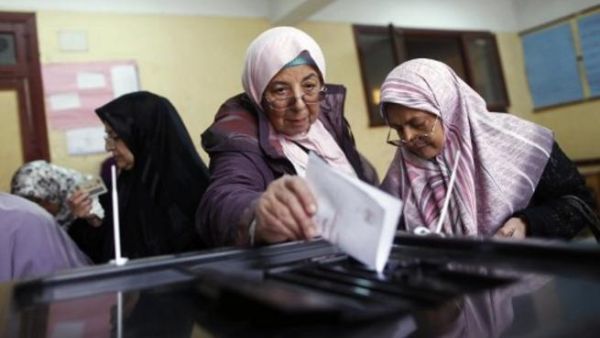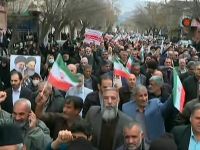Some were on board, some were not. Some parties had called for delay, some opponents hollered for boycott and still others campaigned for the 'No' vote. This was Egypt's referendum on the new constitution, largely drafted by Morsi's Islamist comrades, largely disputed by the polarized country.
Egyptians started earlier today, December 15, voting in a referendum on a draft constitution that has divided the country into more than yes and no, and triggered fatal unrest.
President Mohammed Morsi and his brotherhood have lobbied heavily in favor of their constitution. And not for nothing, if today's high turnout is anything to go by.
Opponents say the charter is faulty and too Islamist, leaving much of the population feeling disenfranchised and irrelevent to their country's direction- not much unlike in Mubarak's time. Short of asking voters to boycott the vote, these opposition groups and seculars settled on urging a rejection vote for the draft bill.
The jury won't be in on Egypt's 'choice' for a while yet. Votes won't be counted and verified until after closing of poll stations -- already extending in places to 11pm to offset long queues. Sources at the scene say that the results won't really be known until after next Saturday following the second round of a referendum staggered into two sessions- given the populous electorate. Exit polls from the first tranche of voters might offer an idea of a likely outcome. More however will become clear on the turnout and scale of violations, overnight.
If the constitution is approved, a lot is at stake given that the transition to democracy rests in this document. As the first round of votes got underway on Saturday, 15 December, accusations were hurled of 'vote rigging' and interference or vote-blocking: Christian Copts as well as 'seculars' were among those reputedly prevented from voting.
One opposition group shared “deep concern... over the number of irregularities and violations" and put this down to the intent to rig the vote by the Muslim Brotherhood brigade.
The violations cited include, according to a Arabiya report, "unsealed ballot papers, Muslim Brotherhood members coercing people into voting for the charter, an absence of judges to monitor and polls being closed early."
The President, himself the apogee of moral standing, was not safe from accusations of cheating. Ahmed Shafiq, former runner for presidency twitter-accused his rival, saying, “the first case of vote rigging in Cairo” took place when the President cast his ballot in Cairo’s Nasr City. He claimed Morsi registered in Zaqaziq in the eastern province and that is where he was supposed to vote.
A group of Egypt’s Christian women voters were reportedly banned from casting their ballots at Cairo’s Nasr City, says AFP.
The November 30 draft constitution - disputed and put to the controversial referendum - was passed by an assembly composed mostly of Islamists, despite a walkout by secular activists and Christians from the 100-member panel.
If the constitution is approved by a simple majority of voters, the Islamists who are getting a taste for power in post-Mubarak Egypt would consolidate their place at the helm of the 'revolution'. Islamist-dominated upper house of parliament, would then seize legislative authority until a new parliament is elected.
If the constitution is rejected, elections would be held within three months conferring a new panel to draft a new constitution. In this eventuality, legislative powers would fall to President Morsi.








